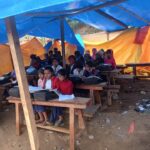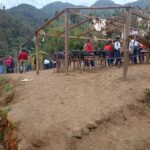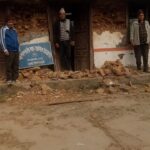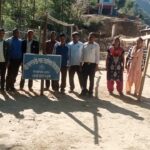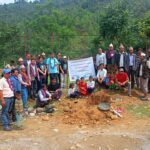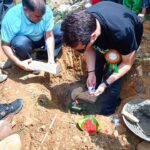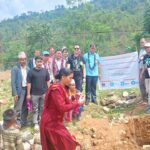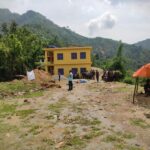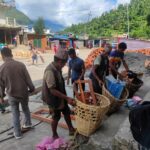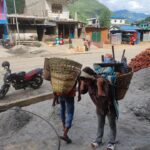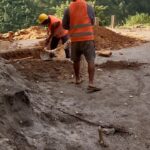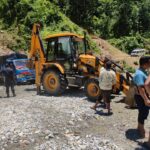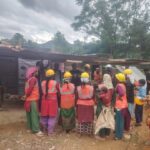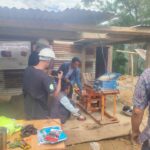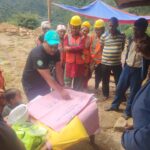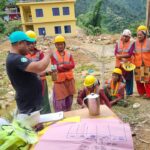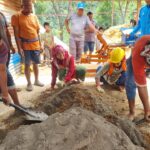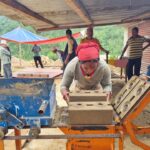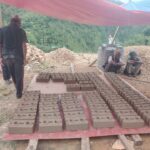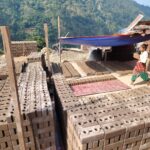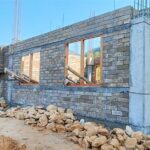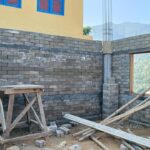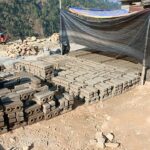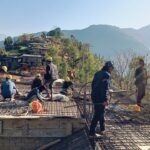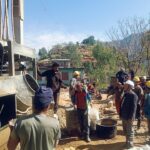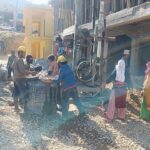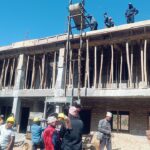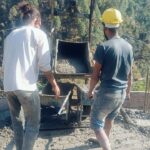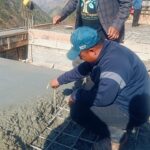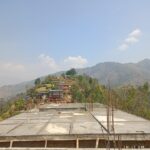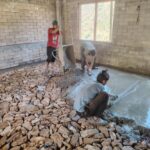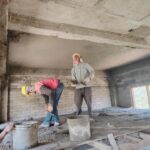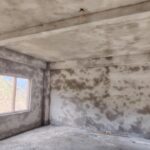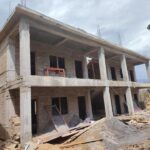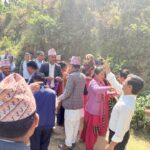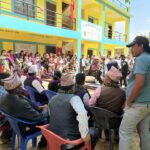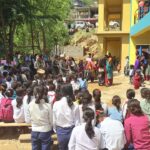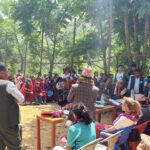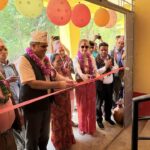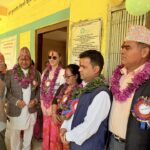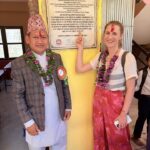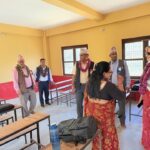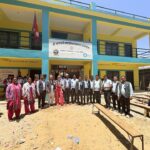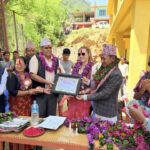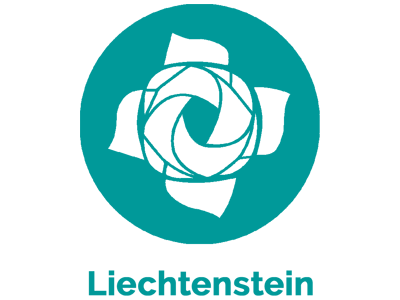Armadanda, West Rukum
SHREE SARASWATI SECONDARY SCHOOL
Reconstruction of the school

Place
Armadanda,
Ward-10,
Sanibheri Rural Municipality,
District West Rukum

Who
Implementation: Chay Ya Nepal,
Sanibheri Rural Municipality

Partners
Chay Ya Liechtenstein

When
2024-2025

For
up to 575 students

Status
Completed and in operation
Project
There is only one secondary school in the village of Armadanda, the Shree Saraswati Secondary School. It was originally run from kindergarten (ECD = Early Childhood Development) to year 12 in five buildings (one RCC building and four other buildings made of drywall), which only offered limited space for the students. However, after the severe earthquake of magnitude 6.4 on November 3, 2023, only the reinforced concrete building with cracks remained, which is used for administration. As there is only one school, children from the surrounding villages also come here to receive an education. There are currently 455 pupils (aged 3 to 16) from kindergarten to year 12, 229 of whom are girls and 226 boys. They are looked after by 16 teachers and 16 members of staff (including a bookkeeper and office staff).
With the financial support of UNICEF Nepal, 4 temporary classrooms were built and with the financial support of the local government, 5 additional tent-like rooms were erected, which are used by the students on a rented private property. With financial support from the Federal President’s Education Program, 4 classrooms could be built as RCC buildings and with the Chay Ya Nepal “Food for work” program, 7 temporary classrooms were added.
For the longterm another 4 permanent classrooms were constructed to provide the students with quality education. We expect the number of pupils to increase from 455 to 575 after the expansion, the municipality will hire more teachers and the quality of education will improve.
The municipality supports the school with a contribution of 20 %.
Sustainability Claimer
Due to the special focus on sustainability, the teachers’ salaries as well as the teaching material at the schools we support are normally paid by the government.
Under special circumstances, such as in very remote schools or in the case of marginalised ethnic groups, these costs are covered by Chay Ya for one year.

